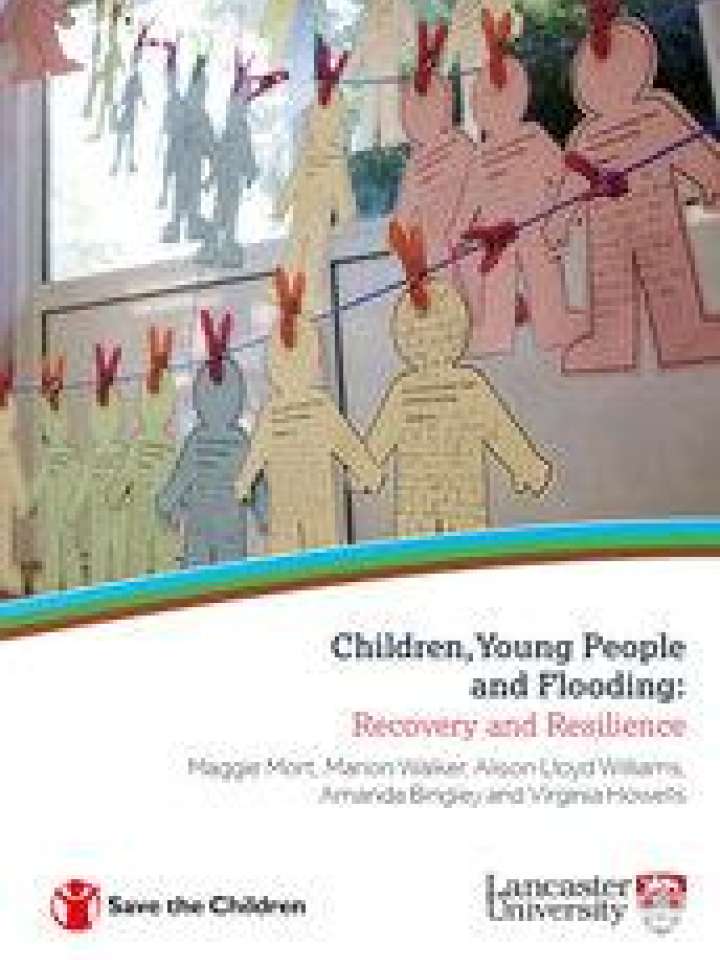Children, young people and flooding: Recovery and resilience
This collaboration between Lancaster University and Save the Children researched children and young people’s experiences of the UK winter 2013/14 floods. The authors used creative arts methods to work with flood-affected children and communicate their ideas to policy. Children, in fact are often ignored in disaster-related planning and policy development.
The publication outlines the following recommendations and policy implications in the following issues (p. 27):
- Recovery, health and wellbeing:
- Recognise that floods cause poverty. Displaced families need help with the extra cost of food, washing clothes and transport.
- Set up groups in schools for children who have been affected by floods, so they can talk and get support.
- Resilience and flood preparedness:
- Provide more grants to help make homes more resilient and help with bureaucratic red tape.
- Support the development of community flood fund initiatives - to help people who are flooded, or may be in the future.
- Flood education:
- Flood education should be given in all schools, from Reception level onwards.
- Teachers need training about floods, and how they affect children and their education.

